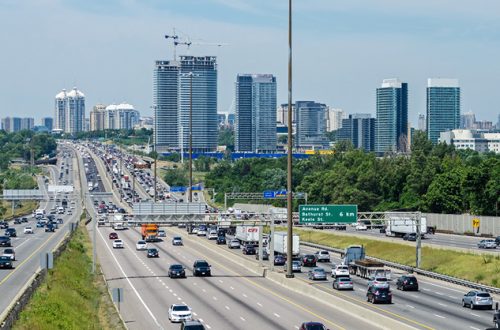On January 14, the Ontario Society of Professional Engineers provided the Government of Ontario with 7 recommendations for its 2019 Ontario Budget – within the prescribed 500 words or less – that highlight how involving the expertise of engineers will benefit the profession and all Ontarians.
As a non-partisan organization, OSPE is committed to providing evidence-based policy recommendations to the sitting government. These recommendations were developed based on engineering expertise and after consultation with the engineering community.
Engineers create wealth and are key to the economic prhttps://ospe.on.ca/wp-content/uploads/2024/10/academy-banner-7.pngrity of Ontario
—
The Ontario Society of Professional Engineers (OSPE) is pleased to make the following recommendations to Hon. Victor Fedeli, Minister of Finance, and the Standing Committee on Finance and Economic Affairs with respect to the 2019 Ontario Budget:
Clean up the hydro mess
—
1. Implement new regulations where surplus emission-free electricity is priced separately from dependable electricity.
- Consult with engineering and electricity rate experts on introducing an interruptible retail electricity market.
- Engineers can provide government with a no-cost way to achieve economy-wide emissions reductions.
OSPE’s rationale: The current retail electricity price plans are contributing to growing amounts of surplus emission-free electricity that is being discarded. In 2016 and 2017, enough emission free electricity for 790,000 and 1,100,000 homes was discarded. The government of Ontario has the opportunity of implementing electricity price reform that can reduce greenhouse gas (GHG) emissions at no net cost.
2. Assemble financial experts to replace the Fair Hydro Plan with a sustainable asset base that does not impose costs on consumers.
- Eliminate cost transfers between rate classes and groups that are creating serious cost escalation for larger commercial and smaller industrial consumers.
- Re-examine electricity system supply mix plans for 2025-2050 to meet international Intergovernmental Panel on Climate Change targets.
OSPE’s rationale: The Fair Hydro Plan is set to expire by the end of 2021. Any major changes to the electricity system rates will take 2 to 3 years to find an acceptable long-term solution, therefore government should start acting now. The Fair Hydro Plan deferral account is growing faster than originally projected. Larger than expected cost transfers are flowing into the deferral account. The existing 2017 Long-Term Energy Plan forecasted residential and small commercial rates to rise about 8 per cent per year for three years after the Fair Hydro Plan expires. The larger deferral account will require rates to rise even faster or longer than forecasted. That will create a major political crisis for the government in 2022 unless solutions are investigated now to fix this growing problem before the end of 2021.
3. Ensure an OSPE representative/professional engineer serves on the Ministry of Environment, Conservation and Parks’ advisory panel on climate change.
- Engineers analyze risks, vulnerabilities, and impacts of climate change on key economic sectors and can establish innovative solutions.
Make Ontario open for business
—
4. Maintain Ontario’s robust research and development (R&D) ecosystem through public-private partnerships.
- Ontario’s impressive R&D infrastructure includes collaborative networks that connect public and private-sector research and funding, university labs and prototyping facilities to innovate and commercialize products, which demonstrate that Ontario is “open for business”. Ontario must continue to secure funding through partnerships with the private sector to remain competitive.
OSPE’s rationale: Research fuels innovation, which drives growth and competitiveness. Ontario is competing with other jurisdictions for talent, technology, and foreign-direct investment by the world’s top companies. Therefore, investments in R&D are essential for the overall well-being of the Ontario economy. The success of R&D efforts is partially a result of a skilled technical workforce. As technical experts, Engineers are essential to all aspects of the innovation economy. Whether it is shifting the focus of the automotive, aerospace, manufacturing, or oil and gas industries, engineers will both be directly impacted and a primordial part of facilitating transitions and commercializing innovations.
5. Address the skills gap.
- Engineers contribute exponentially to Ontario’s economy. Government must ensure that post-secondary engineering programs are adapting to the new knowledge economy by providing work-integrated learning (WIL) opportunities to enhance graduates’ skills as they enter the workforce.
- According to OSPE’s analysis of the 2016 Census, amongst all Ontarians between 25 and 64 years old with engineering degrees, 32% of men and 22% of women work in engineering, while 31% of men and 38% of women work in jobs classified as ‘underemployment’ (jobs not necessarily requiring a degree). Creating accessible and predictable funding opportunities for companies that are looking to hire interns, recent engineering graduates and students will help Ontario develop and retain its engineering talent, which is critical to unlocking the province’s economic potential.
OSPE’s rationale: Investment in engineering creates jobs, wealth and an impressive culture of entrepreneurship benefits that are widely enjoyed by all Ontarians. It is imperative to support our engineering talent by aiding their transition into the workforce so that they can create wealth and jobs right here in our communities. This transition requires that post-secondary engineering programs better reflect the changing economy and the new nature of the workforce.
6. Include an OSPE representative/professional engineer on the Mining Working Group to aid the development of the Ring of Fire region.
- OSPE is a go-to resource for stakeholders, providing independent engineering expertise and identifying solutions to barriers including a lack of infrastructure, high electricity costs and low commodity prices.
OSPE’s rationale: The government should include OSPE as part of its Mining Working Group, because Ontario’s Ring of Fire mining region represents a $60 billion multi-generational economic opportunity, and engineers will be involved in almost every facet of this nation-building project. OSPE aims to be a go-to resource for the public, government, First Nations communities and industry by providing independent engineering expertise. Ontario’s engineers can identify potential solutions to current barriers, including a lack of infrastructure, the high cost of electricity and low commodity prices.
Restore accountability and trust
—
7. Reverse the decision to eliminate the Environmental Commissioner.
- OSPE values the importance of an independent office that reports on climate change, energy, etc. and does not believe that these independent duties can be easily absorbed.
OSPE’s rationale: OSPE truly values the importance of an independent office that reports on government progress on climate change, energy and other environmental issues. OSPE has had the opportunity to work with both the Environmental Commissioner and the Auditor General, and we believe the environment would be better safeguarded under the watch of an independent office such as the Environment Commissioner of Ontario.
These recommendations are essential for the continued economic prhttps://ospe.on.ca/wp-content/uploads/2024/10/academy-banner-7.pngrity of our province. We look forward to presenting in-person at the upcoming 2019 Ontario Budget consultations.
View OSPE’s formal submission to the Government of Ontario
OSPE will provide an update following its consultations with government and the release of the 2019 provincial budget. What do you think of the above recommendations? What else should OSPE advocate for?





Leave a Comment